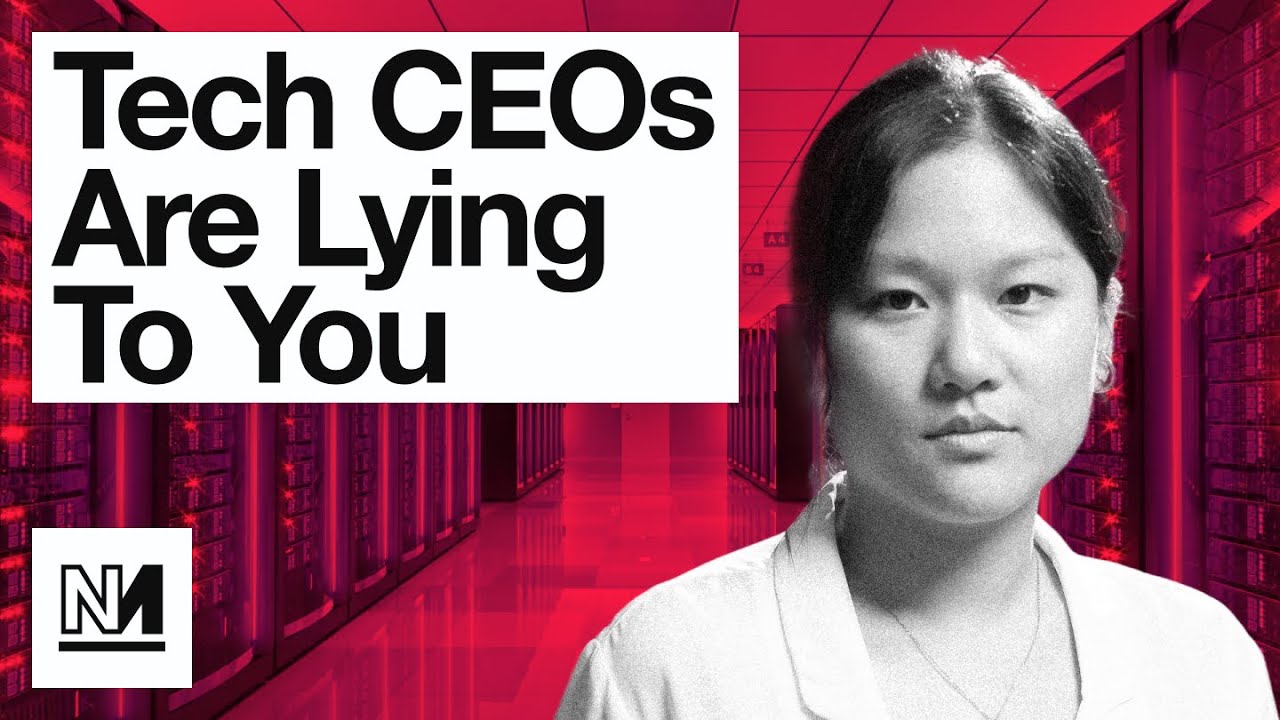In the interview, Karen Hao critically examines the AI industry’s rapid growth, focusing on OpenAI’s shift from nonprofit to for-profit, the environmental and social costs of AI development, and the exploitative labor behind it, while highlighting the dangers of unchecked corporate power and its impact on democracy and global inequality. She calls for greater transparency, ethical accountability, and democratic engagement to challenge the dominant AI companies and ensure technology benefits society rather than exacerbating existing harms.
The video features an in-depth interview with Karen Hao, a journalist and author of the book “Empire of AI,” which provides a critical inside look at the artificial intelligence industry, particularly focusing on OpenAI and its impact on society, democracy, and the environment. Hao, who studied mechanical engineering at MIT and later transitioned into journalism, leverages her technical background and personal connections within Silicon Valley to offer a nuanced perspective on AI development. She emphasizes that AI is not a monolithic technology but a broad umbrella term encompassing various techniques, primarily deep learning systems that rely heavily on massive data and computational resources.
A significant portion of the discussion centers on OpenAI’s origins and evolution. Initially founded in 2015 as a nonprofit by Elon Musk and Sam Altman with the mission to develop AI transparently and collaboratively, OpenAI quickly shifted to a for-profit model to secure the enormous capital required for scaling AI technologies. This pivot led to internal conflicts and Musk’s departure. Sam Altman, portrayed as a masterful and polarizing figure, emerged as the CEO, skillfully navigating Silicon Valley’s complex ecosystem to position OpenAI as a dominant player. Hao highlights Altman’s ability to inspire and manipulate, noting that his leadership style is both visionary and controversial.
The environmental and social costs of AI development are critically examined. Hao reveals the vast energy, water, and land resources consumed by data centers powering AI models, often located in vulnerable or economically disadvantaged communities. She draws parallels between these tech giants and historical corporate empires like the British East India Company, suggesting that unchecked expansion by AI companies threatens democracy and exacerbates global inequalities. The interview also uncovers the exploitative labor practices behind AI, including the traumatic work of content moderators in Kenya and precarious data annotation jobs in Colombia, underscoring the human toll hidden behind AI’s glossy facade.
Hao critiques the prevailing AI industry ideology, which prioritizes scaling up computational power and data usage, often at the expense of efficiency and sustainability. She contrasts this with alternative approaches like DeepSeek and Stable Diffusion, which achieve comparable AI performance with significantly fewer resources but are largely ignored by major companies due to entrenched business interests and path dependencies. The conversation also touches on the geopolitical dimensions of AI, with U.S. tech companies leveraging global resources and infrastructure in ways reminiscent of colonial exploitation, while governments, particularly under the Trump administration, adopt lax regulatory stances to facilitate corporate dominance.
In conclusion, Hao advocates for democratic engagement and collective action to challenge the unchecked power of AI corporations. She encourages individuals and communities worldwide to assert control over data, resist exploitative infrastructure projects, and participate actively in shaping AI policies at local and institutional levels. Drawing an analogy to Frank Herbert’s “Dune,” she describes the AI ecosystem as a quasi-religious movement with fervent believers who may lose sight of the technology’s constructed nature. The interview underscores the urgent need for transparency, accountability, and ethical considerations in AI development to prevent the erosion of democracy and ensure technology serves the public good.
